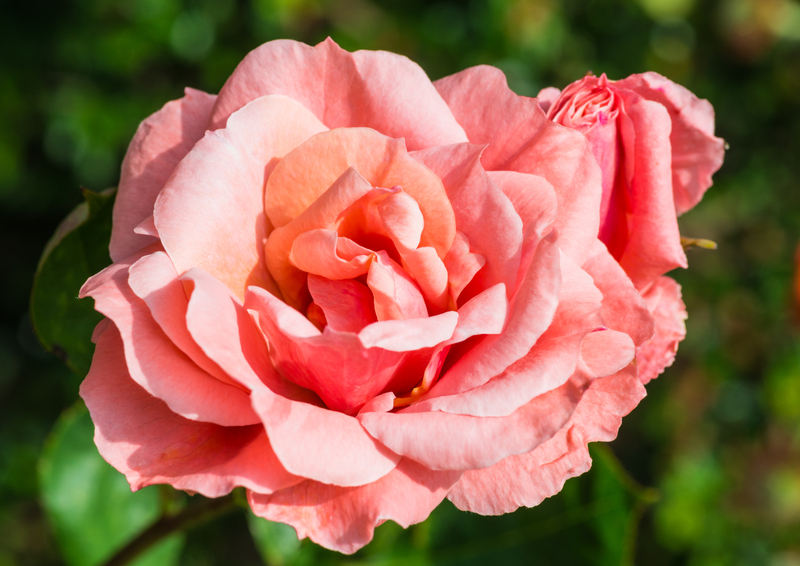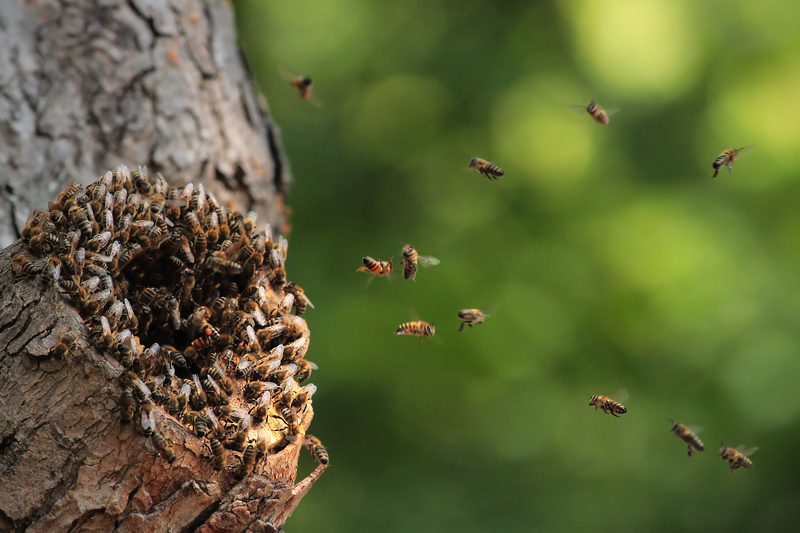For New Gardeners: 9 Essential Tips You Need to Know
Posted on 23/05/2025
For New Gardeners: 9 Essential Tips You Need to Know
Starting your gardening journey can be both exciting and daunting. If you've recently discovered your green thumb or simply want to make your backyard bloom, the process might seem a little overwhelming at first. For new gardeners and hobbyists alike, understanding the foundational techniques will help set you up for success. This comprehensive guide will walk you through nine critical gardening tips that every beginner should know. Follow these expert pointers to cultivate a thriving, beautiful garden from the very start!

1. Choose the Right Location
The first and perhaps most important step for newcomers is selecting the best spot for your new garden. Most vegetables, flowers, and herbs require ample sunlight--ideally, at least 6-8 hours per day. Observe your yard or balcony at different times of the day to learn where the sunniest and shadiest spots are.
- Sunlight: For vegetables, pick a place that gets morning to afternoon sun.
- Protection: Ensure the site is shielded from strong winds or foot traffic.
- Access: Choose a location that's easy to reach for watering and harvesting.
Tip: If your available space is limited, consider container gardening or raised beds, a perfect solution for beginners.
2. Understand Your Soil
The soil is the foundation of any successful garden. As a gardening novice, take time to assess the soil you'll be working with. Soil comes in several types: sandy, clay, loamy, silt, and chalky, each affecting plant growth differently.
How to Test and Improve Your Soil:
- Test your soil with a simple kit from your local garden center to determine pH and nutrient levels.
- Add organic matter such as compost or aged manure to improve fertility and structure.
- If dealing with very poor soil, consider raised beds filled with quality garden soil and compost.
Healthy, nutrient-rich soil supports robust plants and yields better harvests, making this step essential for starting gardeners.
3. Start with Easy-to-Grow Plants
Success breeds enthusiasm! For first-time gardeners, select plants known for their resilience. Vegetables like lettuce, radishes, and beans are beginner-friendly, as are flowers like marigolds and nasturtiums.
- Herbs: Basil, thyme, mint, and parsley are forgiving for new gardeners.
- Vegetables: Salad greens, tomatoes, zucchini, and carrots are great starting points.
- Flowers: Zinnias, sunflowers, and calendula add color and are easy to grow.
Read tags or seed packets carefully to ensure the plant's needs fit your environment.
4. Learn Proper Watering Techniques
One of the most common mistakes new gardeners make is incorrect watering. Both overwatering and underwatering can cause plants to wilt, suffer disease, or even die.
Guidelines to Water Your Garden Effectively:
- Check soil moisture by sticking your finger about an inch deep into the soil. Only water if it feels dry.
- Water deeply but infrequently to encourage strong root growth.
- Water early in the morning to reduce evaporation and prevent fungal diseases.
- Avoid watering leaves; focus on the base of your plants.
Pro Tip: Mulching helps retain soil moisture and reduces the need for frequent watering.
5. Feed Your Plants
The right fertilizer can make all the difference in your garden's health and productivity. Plants need a balance of nutrients like nitrogen, phosphorus, and potassium for optimal growth.
- Use organic fertilizers such as compost, worm castings, or commercial blends formulated for vegetables or flowers.
- Follow package instructions and never over-fertilize, which can damage roots and stunt growth.
- Feed actively growing plants, usually every few weeks during the season.
For new and seasoned gardeners alike, feeding your plants correctly is key to gardening success.
6. Mulch to Protect and Nurture
Mulching is an easy and effective method to maintain healthier soils and plants. For beginner gardeners, mulch offers several advantages:
- Reduces weeds by blocking sunlight from reaching weed seeds.
- Retains moisture by slowing evaporation from the soil surface.
- Regulates soil temperature, protecting roots from extreme weather.
- Improves soil fertility as organic mulch materials decompose.
Shredded bark, straw, leaves, or grass clippings make great mulches for most garden beds. Apply a 2-4 inch layer, keeping it a few inches away from plant stems to prevent rot.
7. Monitor for Pests & Problems
Even the most diligent newbie gardeners will face garden pests and diseases. The key is to catch these issues early, before serious damage occurs.
How to Practice Plant Vigilance:
- Inspect plants often for holes in leaves, wilting, discoloration, or other signs of stress.
- Handpick pests when possible (such as caterpillars or slugs).
- Encourage beneficial insects like ladybugs and lacewings that eat harmful bugs.
- Choose disease-resistant varieties when possible.
- Remove diseased plant material promptly to prevent spread.
If you prefer organic gardening, use natural pest controls such as neem oil, insecticidal soaps, or homemade garlic spray.
8. Keep Tools Clean and Sharp
Garden tools are your best friends in maintaining a lush, healthy garden. For first-time gardeners, investing in a few quality basics--a trowel, pruners, and a watering can--makes gardening easier and more enjoyable.
- Clean tools after each use to prevent rust and the spread of disease.
- Sharpen blades regularly for efficient, precise cuts.
- Store tools in a dry, safe location to extend their lifespan.
Don't be tempted to buy every tool you see--start with the essentials and add more as your gardening experience grows!
9. Be Patient and Enjoy the Journey
Gardening teaches patience and persistence. Plants take time to grow and mature, and not every season will go perfectly. Remember:
- Celebrate small successes, whether it's your first flower or a handful of homegrown carrots.
- Learn from mistakes and adjust your approach each season.
- Keep a garden journal to document plant varieties, weather, harvest dates, and lessons learned.
Most importantly, enjoy the process. Gardening connects you to the rhythms of nature, encourages physical activity, and provides a genuine sense of accomplishment.

Frequently Asked Questions for New Gardeners
What is the best time to start a garden as a beginner?
In most regions, spring is the best time to start a new garden. Warmer soil and increased daylight help seeds sprout and plants establish roots. Some cold-weather crops, however, can be planted in early spring or late summer for a fall harvest.
How do I choose the right plants for my beginner garden?
Look for plants labeled as "easy to grow" or "hardy." Annuals and perennials suited to your climate, and vegetables with short growing seasons, are usually good choices. Ask advice at your local nursery or consult gardening books tailored to your region.
How can I avoid common mistakes new gardeners make?
- If using containers, ensure they have drainage holes.
- Don't plant too closely together--allow room for growth.
- Keep up with routine maintenance such as watering, weeding, and mulching.
Conclusion: Start Your Gardening Adventure Today!
With these 9 essential tips, beginning gardeners are well-equipped to cultivate a flourishing outdoor oasis. Remember, every master gardener was once a beginner: The key is to keep learning, experimenting, and enjoying the natural world. Whether you're aiming for a vegetable bounty or a yard filled with blooms, following these gardening basics will give you the confidence and skills to watch your dream garden grow. Happy gardening!
Latest Posts
Creating Endless Adventures in a Child-Friendly Garden
Explore the Basics of Growing a Successful Herb Haven
Turning Your Garden into a Sanctuary with Seating Ideas
Waste Not, Want More: Organic Waste's Journey to Fertile Ground
.jpg)


